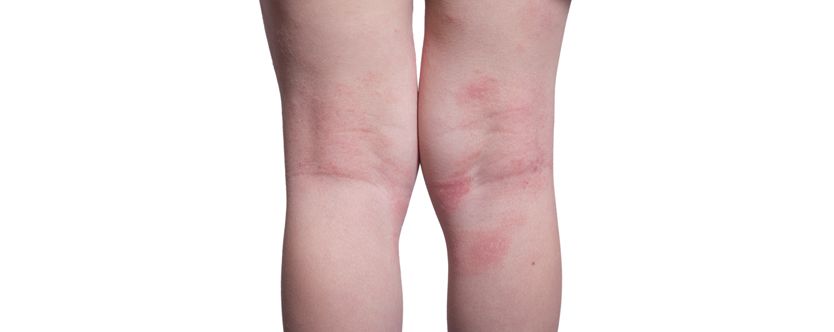
What is Psoriasis?
Psoriasis is a serious skin condition that produces plaques of thickened scaling skin. It is an extremely unpredictable, irritating and persistent skin disease, which can resurface at times. However, the good news is that it is noncontagious in nature.
Psoriasis causes skin cells to multiply ten times faster than normal, therefore when the underlying skin cells reach the surface they die. This results in a rapid build-up of red plaques on the surface of the skin, which are covered in white silvery scales. Psoriasis is characterised by the appearance of itchy, dry, red patches on the skin, which are occasionally painful and can sometimes crack and bleed as well. This is triggered by inflammatory chemicals produced by specialized white blood cells called lymphocytes.
Psoriasis commonly affects the skin of the elbows, knees, scalp, palms, soles of feet and sometimes even the torso, and can even grow to cover large surfaces of the skin. The symptoms can vary from person to person depending on the type of psoriasis they have. It can also be associated with psoriatic arthritis, which causes pain and swelling in the joints. Psoriasis is particularly frustrating as well as difficult to treat, as there is no permanent cure to treat this skin disorder.
